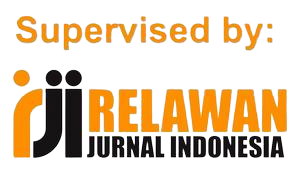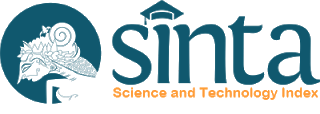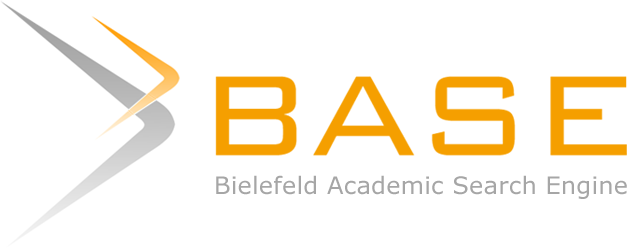Influence of Financial Literacy, Social Environment, and Financial Technology Against Financial Behavior
Abstract
Keywords
Full Text:
PDFReferences
Ajzen, I. (1991). The Theory of Planned Behavior: Organizational Behavior and Human Decision Processes. Organizational Behavior and Human Decision Processes, 20(12), 179-211. https://doi.org/10.1016/0749-5978(91)90020-T
Al-Hashimy, H. N. H, Alabdullah, T. T. Y, Ahmed, E. R., Asmar, M., Nor, M. I., & Jamal, K. A. M. (2022). The Impact of Financial Management Elements and Behavioral Intention on the Financial Performance. International Journal of Scientific and Management Research, 5(12), 117-149. http://doi.org/10.37502/IJSMR.2022.51210
Bialowolski, P., Cwynar, A., & Weziak-Bialowolska, D. (2020). Financial Management, Division of Financial Management Power and Financial Literacy in The Family Context – Evidence from Relationship Partner Dyads. International Journal of Bank Marketing, 38(6), 1373-1398. https://doi.org/10.1108/IJBM-01-2020-0023
Bitrián, P., Buil, I., & Catalán, S. (2021). Making Finance Fun: The Gamification of Personal Financial Management Apps. International Journal of Bank Marketing, 39(7), 1310-1332. https://doi.org/10.1108/IJBM-02-2021-0074
Brüggen, E., Hogreve, J., Holmlund, M., Kabadayi, S., & Löfgren, M. (2017). Financial Well-Being: A Conceptualization and Research Agenda. Journal of Business Research, 79, 228–237. https://doi.org/10.1016/j.jbusres.2017.03.013
Chang, C. L., McAleer, M., & Wong, W. K. (2020). Risk and Financial Management of COVID-19 in Business, Economics and Finance. Journal of Risk and Financial Management. 13(5_, 102. https://doi.org/10.3390/jrfm13050102
Chen, H., & Volpe, R. P. (1998). An Analysis of Personal Financial Literacy among College Students. Financial Services Review, 7(2), 107–128. https://doi.org/10.1016/S1057-0810(99)80006-7
Engels, C., Kumar, K., & Philip, D. (2020). Financial Literacy and Fraud Detection. The European Journal of Finance, 26(5), 420-442. https://doi.org/10.1080/1351847X.2019.1646666
Fiscarina, K. D., & Paranita, E. S. (2023). Financial Performance of Health Service Providers Sub-Industry Companies Before and During the Covid-19 Pandemic. Journal of Applied Management Research, 3(1), 51-61. http://dx.doi.org/10.36441/jamr.v3i1.1648
França, L. H. F., & Hershey, D. A. (2018). Financial Preparation for Retirement in Brazil: A Cross-Cultural Test of the Interdisciplinary Financial Planning Model. Journal of Cross-Cultural Gerontology, 33(1), 43–64. https://doi.org/10.1007/s10823-018-9343-y
Goyal, K., Kumar, S., & Xiao, J. J. (2021). Antecedents and Consequences of Personal Financial Management Behavior: A Systematic Literature Review and Future Research Agenda. International Journal of Bank Marketing, 39(7), 1166-1207. https://doi.org/10.1108/IJBM-12-2020-0612
Guzman, F., Paswan, A., & Tripathy, N. (2019). Consumer Centric Antecedents to Personal Financial Planning. Journal of Consumer Marketing, 36(6), 858-868. https://doi.org/10.1108/JCM-01-2018-2514
Hamid, F. S., & Loke, Y. J. (2020). Financial Literacy, Money Management Skill, and Credit Card Repayments. International Journal of Consumer Studies, 45(2), 235-247. https://doi.org/10.1111/ijcs.12614
Herrador-Alcaide, T. C., Hernández-Solís, M., & Topa, G. (2021). A Model for Personal Financial Planning towards Retirement. Journal of Business Economics and Management, 22(2), 482-502. https://doi.org/10.3846/jbem.2020.13978
Hindelang, M. J., Gottfredson, M. R., & Garofalo, J. (1978). Victims of Personal Crime: An Empirical Foundation for A Theory of Personal Victimization. Ballinger: Cambridge, Mass.
Iriani, A. R., Rahayu, C. W. E., & Rahmawati, C. H. T. (2021). The Influence of Demographic Factors and Financial Literacy on The Financial Behavior. JKMB: Jurnal Kajian Manajemen Bisnis, 10(1), 33-45. https://doi.org/10.24036/jkmb.11220500
Karadag, H. (2017). The Impact of Industry, Firm Age and Education Level on Financial Management Performance in Small and Medium-Sized Enterprises (SMEs): Evidence from Turkey. Journal of Entrepreneurship in Emerging Economies, 9(3), 300-314. https://doi.org/10.1108/JEEE-09-2016-0037
Kusnandar. (2022). “Tingkat Literasi Keuangan Masyarakat Indonesia Masih Rendah”. https://databoks.katadata.co.id/datapublish/2022/09/26/tingkat-literasi-keuangan-masyarakat-indonesia-masih-rendah. diakses tanggal 1 April 2023.
Machkour, B., & Abriane, A. (2020). Industry 4.0 and Its Implications for The Financial Sector. Procedia Computer Science, 177, 496-502. https://doi.org/10.1016/j.procs.2020.10.068
Mahardini, N. Y., & Framita, D. S. (2022). Financial Distress: Studi pada Jumlah Dewan Komisaris, Karakteristik CEO, dan Leverage Perusahaan Manufaktur di Indonesia. Journal of Applied Management Research, 2(2), 81-90. http://dx.doi.org/10.36441/jamr.v2i2.1209
OJK. (2017). “FAQ LPMUBTI - Kategori Umum”. www.OJK.go.id. accessed February 9, 2023
Oppong, C., Atchulo, A. S., Akwaa-Sekyi, E. K., Grant, D. D., & Kpegba, S. A. (2023). Financial Literacy, Investment and Personal Financial Management Nexus: Empirical Evidence on Private Sector Employees. Cogent Business & Management, 10(2), 2229106. https://doi.org/10.1080/23311975.2023.2229106
Panos, G. A., & Wilson, J. O. S. (2020). Financial Literacy and Responsible Finance in The FinTech Era: Capabilities and Challenges. The European Journal of Finance, 26(4), 297-301. https://doi.org/10.1080/1351847X.2020.1717569
Peiris, T. U. I. (2021). Effect of Financial Literacy on Individual Savings Behavior: The Mediation Role of Intention to Saving. European Journal of Business and Management Research, 6(5), 94–99. https://doi.org/10.24018/ejbmr.2021.6.5.1064
Potrich, A. C. G., & Vieira, K. M. (2018). Demystifying Financial Literacy: A Behavioral Perspective Analysis. Management Research Review, 41(9), 1047-1068. https://doi.org/10.1108/MRR-08-2017-0263
Rahayu, C. W. E., & Rahmawati, C. H. T. (2019). The Influence of Financial Literacy on The Personal Financial Management of Government Employees. INOVASI: Jurnal Ekonomi Keuangan dan Manajemen, 15(2), 128-134. https://doi.org/10.30872/jinv.v15i2.5421
Rahayu, C. W. E., & Rahmawati, C. H. T. (2021). The Determinant Factors of Personal Financial Management of Indonesian Migrant Workers in Hongkong. MIX: Jurnal Ilmiah Manajemen, 47-63, 11 (1).
Rahayu, C. W. E., & Rahmawati, C. H. T. (2022). Financial Management Of Msme In Culinary Industry According To Demographics And Financial Literacy. JMBE: Journal of Management and Business Environment, 4(1), 82-99. https://doi.org/10.24167/jmbe.v4i1.4626
Rahmawati, C. H. T. (2022). Financial Literacy and Demographic Factors on Financial Management: A Study on MSMEs in Sleman Regency in The New Normal Era. JKMB: Jurnal Kajian Manajemen Bisnis, 11(2), 152-167. https://doi.org/10.24036/jkmb.12000000
Rogers, E. M. (2003). Diffusion of Innovation. New York: The Free Press.
Safari, K., Njoka, C., & Munkwa, M. G. (2021). Financial Literacy and Personal Retirement Planning: A Socioeconomic Approach. Journal of Business and Socio-economic Development, 1(2), 121-134. https://doi.org/10.1108/JBSED-04-2021-0052
White, C. J., & Dyk, H. V. (2019). Theory and Practice of The Quintile Ranking of Schools in South Africa: A Financial Management Perspective. South African Journal of Education, 39(1), 150-159.
DOI: https://doi.org/10.36441/jamr.v3i2.1824
Article Metrics
Abstract views : 289 times
PDF views : 198 times
Dimension Citation Metrics
Refbacks
- There are currently no refbacks.
Copyright (c) 2024 Christina Heti Tri Rahmawati, Tiberias Krisgaharu Simu, Albertus Yudi Yuniarto
Article Metrics
Abstract views : 289 timesPDF views : 198 times
Dimension Citation Metrics
Refbacks
- There are currently no refbacks.
Copyright (c) 2024 Christina Heti Tri Rahmawati, Tiberias Krisgaharu Simu, Albertus Yudi Yuniarto
Refbacks
- There are currently no refbacks.
Copyright (c) 2024 Christina Heti Tri Rahmawati, Tiberias Krisgaharu Simu, Albertus Yudi Yuniarto
Indexing and Abstracting
Journal of Applied Management Research is indexed and abstracted in the following databases:
Cataloging
JAMR is also available on several library catalogues:

Copyright ©2021 Journal of Applied Management Research (JAMR). This work is licensed under a Creative Commons Attribution-NonCommercial-ShareAlike 4.0 International License.
























